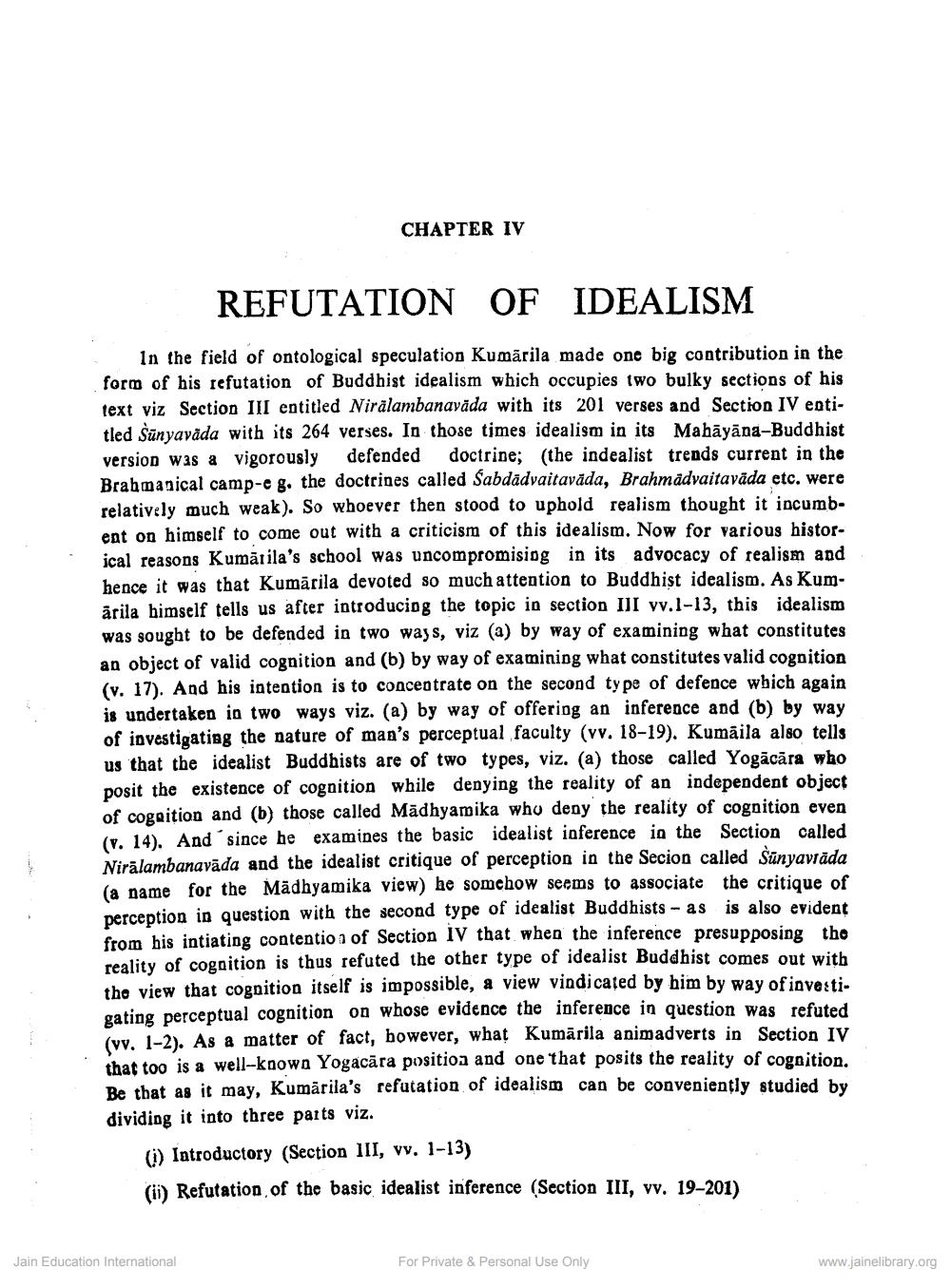________________
CHAPTER IV
REFUTATION OF IDEALISM
in the field of ontological speculation Kumārila made one big contribution in the form of his refutation of Buddhist idealism which occupies two bulky sections of his text viz Section III entitled Niralambanavāda with its 201 verses and Section IV entitled Sünyavāda with its 264 verses. In those times idealism in its Mahāyāna-Buddhist version was a vigorously defended doctrine; (the indealist trends current in the Brahmanical camp-e g. the doctrines called Sabdădvaitavāda, Brahmadvaitavāda etc. were relatively much weak). So whoever then stood to uphold realism thought it incumbent on himself to come out with a criticism of this idealism. Now for various historical reasons Kumärila's school was uncompromisiog in its advocacy of realism and hence it was that Kumārila devoted so much attention to Buddhist idealism. As Kumárila himself tells us after introducing the topic in section IJI vv.1-13, this idealism was sought to be defended in two ways, viz (a) by way of examining what constitutes an object of valid cognition and (b) by way of examining what constitutes valid cognition (v. 17). And his intention is to concentrate on the second type of defence which again is undertaken in two ways viz. (a) by way of offering an inference and (b) by way of investigating the nature of man's perceptual faculty (vv. 18-19). Kumāila also tells us that the idealist Buddhists are of two types, viz. (a) those called Yogācāra who posit the existence of cognition while denying the reality of an independent object of cognition and (b) those called Madhyamika who deny the reality of cognition even (v. 14). And since he examines the basic idealist inference in the Section called Niralambanavāda and the idealist critique of perception in the Secion called Sünyavräda (a name for the Madhyamika view) he somehow seems to associate the critique of perception in question with the second type of idealist Buddhists - as is also evident from his intiating contention of Section IV that when the inference presupposing the reality of cogaition is thus refuted the other type of idealist Buddhist comes out with the view that cognition itself is impossible, a view vindicated by him by way of investigating perceptual cognition on whose evidence the inference in question was refuted (vv. 1-2). As a matter of fact, however, what Kumārila animadverts in Section IV that too is a well-known Yogacāra positioa and one that posits the reality of cognition. Be tbat as it may, Kumārila's refutation of idealism can be conveniently studied by dividing it into three parts viz.
(i) Introductory (Section III, vv. 1-13) (i) Refutation of the basic idealist inference (Section III, vv. 19-201)
Jain Education International
For Private & Personal Use Only
www.jainelibrary.org




